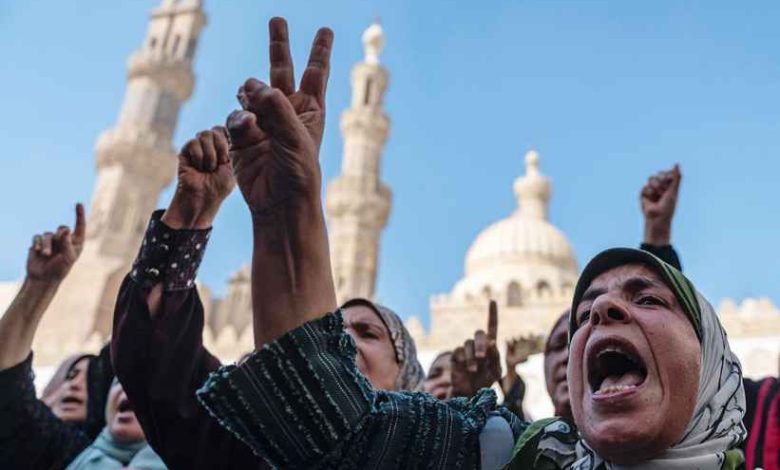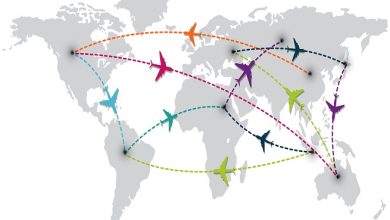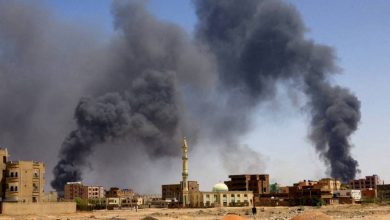
Agencies – Sudan Events
Religious tolerance has increased widely among Muslim countries. Over the past decade more than a dozen have hosted Pope Francis. Egypt, the United Arab Emirates (UAE) and Morocco have renovated synagogues or built new ones. And in Iraq, a centre for inter-faith dialogue opened opposite the gates of Shiism’s holiest shrine, in Najaf.
Vanity fair
Social reform has accompanied slumping Islamist fervour. In Saudi Arabia pressure came from the top, but many citizens welcomed it. Mosques there now compete with star-studded concerts, film festivals and sports fixtures for popular attention. Men and women are no longer segregated in universities, offices and restaurants. Economic necessity has also pushed women to take up traditionally male jobs, from herding livestock to driving taxis. Meanwhile Tunisia’s parliament overturned a sharia-based ban on Muslim women marrying non-Muslim men in 2017.
Other changes are being promoted by ordinary Muslims, if not by the elites. Iran saw mass protests for women’s rights last year; the regime killed 500 people in retaliation. Divorce rates in the once conservative Gulf now exceed those of many Western countries. And as economic hardship forced couples to delay marriage, pre-marital sex has become more prevalent in the region, say sociologists.
Political Islam faltered during a decade in which social and cultural norms became increasingly globalized. In 2011 it flourished during the Arab Spring. But by 2019 protesters in Algeria, Iran, Iraq, Lebanon and Sudan were demanding a civil state. In 2021 Moroccans voted out an Islamist prime minister and his party.
This rejection of political Islam reflects how little its adherents did to tackle profound economic malaise in the countries where they held power. In Egypt, Gaza and Tunisia, incomes slumped under their rule. Unemployment mushroomed; foreign investment plummeted. Idlib, a jihadist redoubt in north-west Syria, is among the country’s poorest provinces. The malaise wasn’t always of the Islamists’ own making. But they had promised that “Islam is the solution.” It wasn’t.
In countries such as Egypt, military might drove Islamists from power. (Popular disillusion meant they weren’t always missed.) There and in Saudi Arabia and the uae the Muslim Brotherhood, the world’s oldest Islamist movement, was banned. Last year Tunisia jailed Rached Ghannouchi, the Islamist who served as the speaker of the country’s parliament. Overt religiosity has rankled governments, too. In September Egypt banned the niqab, or face-covering, in schools.
Violent jihadism declined alongside political Islam. From 2001 Western governments waged a “war on terror”. Two decades on, “spectaculars” in much of the world are considered a thing of the past. In Syria and Iraq, an American-led coalition destroyed the caliphate of Islamic State (is), a territory the size of Britain which harboured and trained tens of thousands of fighters. Since 2019, jihadist attacks in Syria have fallen from over 1,000 per year to around 100.
Other Islamist movements curbed their behaviour in order to survive. Al-Qaeda’s Syrian offshoot was one such. For years Hamas, at least on the surface, seemed part of that club. It stopped its suicide-bombings in Israel and in 2017 issued a new charter stripped of the overt antisemitism of the original. Many women in Gaza city took off the veil. It is an irony that Israel, in order to divide the Palestinians, actually propped up one of the region’s last Islamist redoubts and learned to live with its rule. Hamas’s rampage through southern Israel has shattered any illusion of possible coexistence, however.
How will political Islam evolve in response to the war in Gaza? It is possible that a new generation of extremists emerges. Economic woes, poor governance and pernicious despotism all provide fertile ground for a comeback. Libya, Lebanon and Yemen are already failed states. The Middle East’s most populous ones, Egypt and Iran, are both economically unstable.
The Gaza war “could be the kiss of life for the Muslim Brotherhood”, says Ahmed Abu Douh, an Egyptian analyst with Chatham House, a British think-tank. Out of government, Hamas could wreak more havoc. And in Islam’s periphery the ideological fires burn unquenched. Jihadists thrive in Afghanistan and in eastern Syria when the Kurds retreat to their barracks. They control much of the Sahel and are pushing into other parts of Africa. “It’s too soon to celebrate the end of jihadism,” says Rajan Basra of the Department of War Studies in London.
Governments in the Middle East are trying to suppress any resurgence. Many Muslim rulers see an Islamist revival as a threat to themselves as much as it is one to the West. They may even support Israel’s goal of destroying Hamas, if not its means. No country which has recently normalised relations with Israel has broken off ties, or called for America to leave its regional bases. And most Gulf states have banned protests and sermons in solidarity with Palestinians. Even Qatar, the protector of Hamas and other Islamist causes, offered to expel the Islamists if its ally, America, asked as much. Iran and its axis of resistance have also shied from the fight and left the group to battle alone.
Still, it would be wrong to mistake silence for acquiescence. “Beware of the calm,” says Ali Bakir, an expert in political Islam with the Atlantic Council, an American think-tank. “It can herald the explosion to come.” Islamism has a habit of bouncing back. Many cheered the death of jihadism after the killing of Osama Bin Laden in 2011. Yet two years later is swept through the Middle East.
Hamas’s overthrow in Gaza might bring a short-term lull, but in time it could disperse its ideas and its militants across the Middle East. Islamism itself might evolve into something less sectarian as it spreads, perhaps bringing Sunni and Shia followers together, but its militancy could intensify. “The world is dreaming if it thinks the Islamist moment has gone,” says Andrew Hammond of Oxford University.
To keep political Islam reasonably quiescent, the rift between Israel and the Palestinians will have to be healed. Muslim regimes across the region should urgently tackle the socioeconomic ills that Islamists feed upon. The Middle East’s oil-rich states can afford a contract which offers individual rather than political freedom. But poorer ones cannot pay for the social protection that underwrites it. Still, locking Islamists up will do nothing to compensate for that. Islam has often flourished in a multi-faith world. It can do so again.



